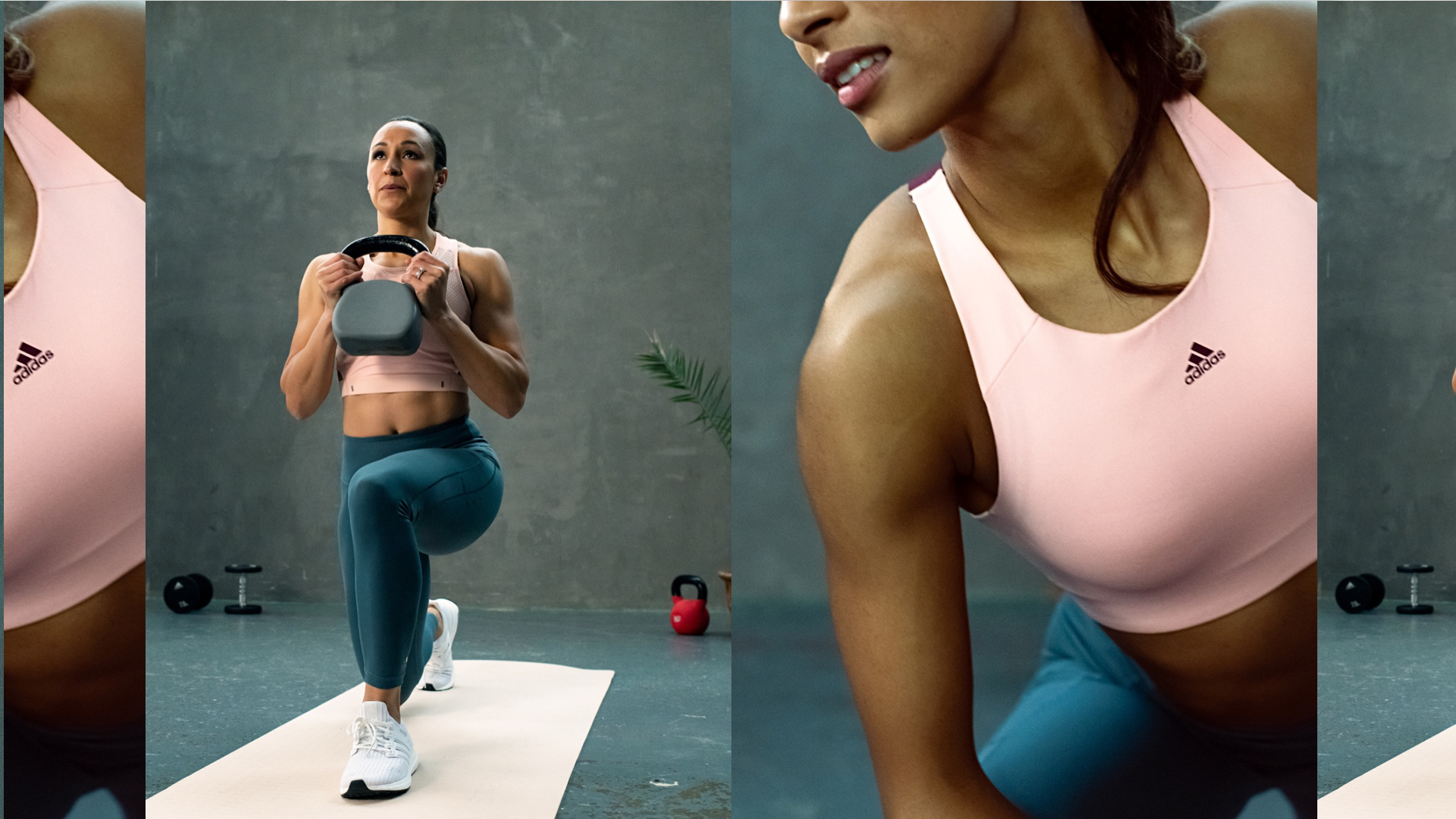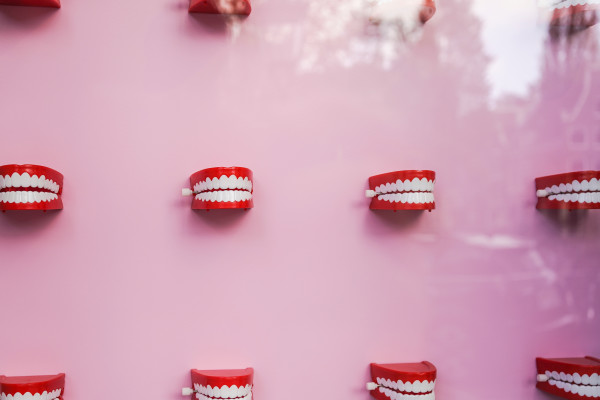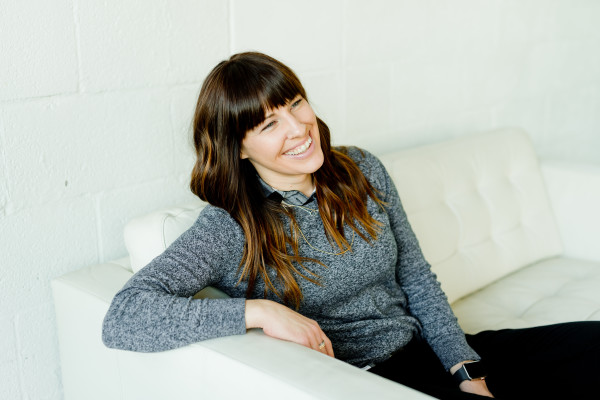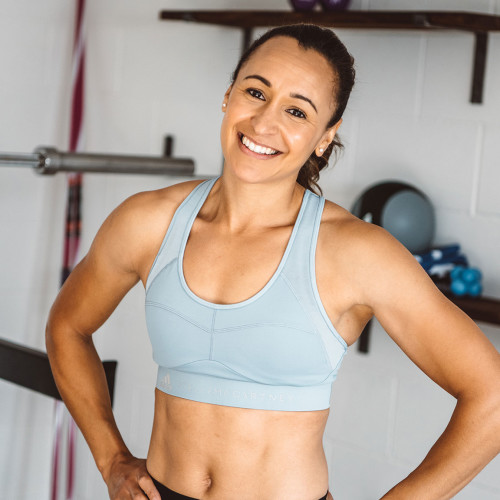7 surprisingly brilliant things you didn't know about your menstrual cycle
2 years ago
Cycle syncing2 years ago
Cycle syncing
When you’re experiencing pre-menstrual body bloat or you’re wincing from period cramps, you could be forgiven for focusing on the negatives of your menstrual cycle. But that doesn’t reflect the whole hormonal picture. Here, Jennis physiologist Dr Emma Ross reveals the lesser-known amazing things you can tap into across your menstrual cycle…
Reviewed by: Dr Emma Ross
“We’ve been ingrained to look at the menstrual cycle negatively and use words such as moody, hormonal, emotional and so on,” says Jennis physiologist Dr Emma Ross. “But to me, that’s doing our menstrual cycles a disservice.
“There are parts of our menstrual cycles when we can feel like a hero, build lean muscle, beat that PB. It’s just that we haven’t been taught to recognise the good stuff as part of our menstrual month or been taught how to capitalise on those positive things.”
Here, Dr Emma sets the record straight and reveals some surprising benefits we can blame on our menstrual cycles, too.
Ever wondered why you feel more confident and sociable some weeks, then on others you just want to hibernate? It could be to do with where you’re at in your menstrual cycle. “During the follicular phase (pronounced fuh-lick-yoo-lah), days 1-14", says Emma, "because oestrogen (pronounced ee·struh·jn) is high, and progesterone (pronounced pruh·jeh·stuh·rown) is low , you’re more likely to feel outgoing and motivated and, as a result, more able to tackle challenging problems.”
“As levels of oestrogen (the go-get-'em hormone) continue to rise during your follicular phase,” says Emma, “you can experience a natural energy boost, which means your motivation to train could be higher than usual .”
When it comes to your physical fitness, this may mean that you feel ready to attack a few hard Jennis sessions and push yourself to take on those extra reps or sets.
There are parts of our menstrual cycles when we can feel like a hero, build lean muscle, smash that PB
“By day 14 or 15 of your cycle, ovulation occurs and high oestrogen, combined with a small dose of testosterone, has been shown to improve readiness to train and performance during training ,” says Emma. With energy levels at their highest, studies suggest that we’re more likely to beat our personal bests at this point in our cycles – whether that’s a faster 5k, heavier weights or extra reps. “The key,” says Emma, “is that we have the mindset to push ourselves further and harder and that’s what gets results.”
“There are certain points in your cycle (and yes, it’s that powerful follicular phase again) when you recover more quickly, you have better muscle adaptation and your pain tolerance is better, all of which can help you build lean muscle,” says Emma. “In order to capitalise on this, you need to incorporate the right HIIT and strength sessions into your workouts during this time (there are a selection in your Jennis app).”
“In evolutionary terms,” says Emma, “ovulation is the time of your menstrual month when – according to our science text books – we need to attract a partner to procreate.
“To help us get in the mood, our hormones make us feel super-assertive, attractive and self-confident. What’s less known, however, is that, according to various studies, our gait changes and we get a definite swagger on . “In biological terms, it kind of makes sense,” she continues. “If this is the point of your cycle when you would hypothetically go out there and get a mate, it stands to reason that you might want to make a display of that, so your actual strut can change.”
During the follicular phase, you’re more likely to feel outgoing and motivated and, as a result, more able to tackle challenging problems
After ovulation, you enter the luteal phase (pronounced loo-tee-al) of your menstrual cycle, and it’s at this point that you can feel a sense of calm and reduced anxiety thanks to the presence of progesterone. “If oestrogen during the follicular phase is about getting out there and getting a mate,” says Emma, “progesterone is the one that tells you to snuggle up. “There’s a lot of evidence to show how progesterone calms the circuits of the brain and has a general calming and soothing effect, all of which can make you feel less anxious.”
It’s not only our motivation and mindset that changes across our menstrual cycles. As you’re probably well aware, our appetites and ability to burn calories can change across our menstrual cycles, too. “After ovulation, we enter the luteal phase and the increase in progesterone we experience increases our basal metabolic rate. This means we burn more calories each day (and research shows that we naturally increase our calorie intake to match this extra demand),” says Emma. “We’re also better able to use fat as fuel. “In terms of exercise, this means that your physiology is better suited to steady state or endurance type exercise, and you might benefit from the lower intensity steady state (LISS) workouts (you can find in your Jennis app).”
“There is no ‘normal’ cycle. Everyone’s experience of their cycle is completely different and that’s what’s actually normal. For us, it's about tuning into your unique cycle and symptoms and working with it to get the best out of your training each day.”
 Cycle syncing
Cycle syncing Perimenopause
Perimenopause Perimenopause
Perimenopause Perimenopause
PerimenopauseSign up to learn everything you need to know about CycleMapping, plus how you can live better and feel better through optimising your fitness to you.
This website uses cookies to ensure you get the best experience on our website. Learn more

Sign up for the very latest news on women's fitness, health and hormones, plus be the first to receive exclusive offers and extras